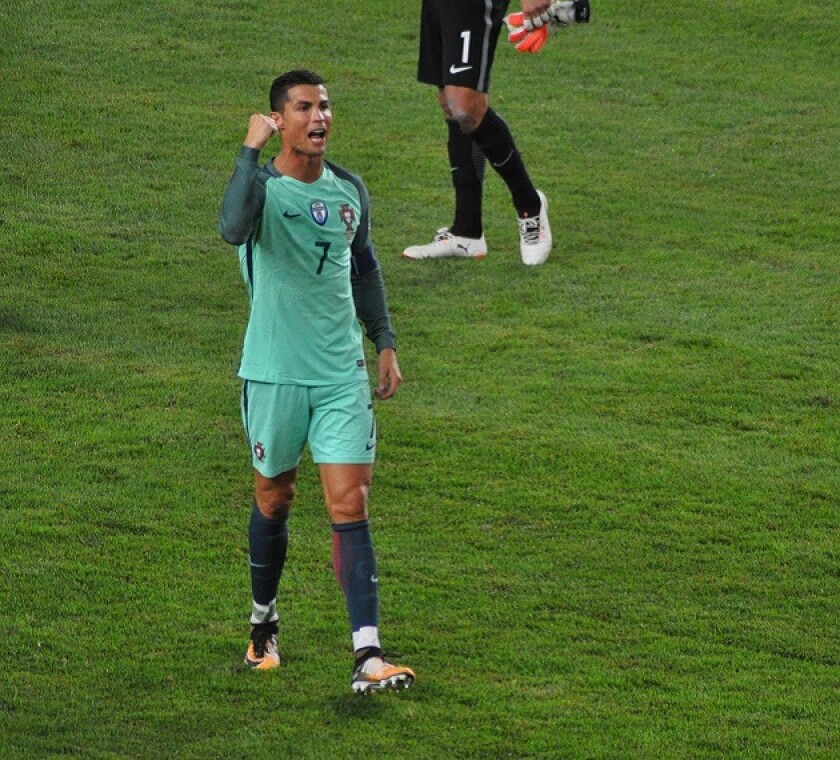The temptation is great, even for mere mortals. Who hasn't thought about adding a meal or a gas bill to their tax exemption?
But when the Football Leaks exposed the world's most famous football players to be tax avoiders in December 2016, public disapproval was widespread. Spanish prosecutors also began to stock up their arsenal and took a closer look at the tax returns of high-profile football players and managers.
A collective of 60 journalists from 12 European media agencies had formed the European Investigative Collaborators (EIC) and sifted through 18.6 million documents, including emails and contracts, provided by an anonymous whistleblower, who calls himself John.
At the time of writing, Messi has scored 584 goals and assisted 236 in his 726 games for Barcelona and Argentina, while Ronaldo's stats read 619 goals and 202 assists in 880 games playing for three clubs plus his home country of Portugal during his career. But it's their tax statistics that caught the eye of the EIC. Documents showed that Ronaldo, playing for European champions Real Madrid, had diverted €63.5 million ($75.2 million) to the British Virgin Islands (BVI) in 2014. In July 2017, Ronaldo appeared before a Spanish court to defend allegations of evading €14.5 million in taxes from the sale of image rights to several shell companies in the BVIs.
Reportedly, Ronaldo accused the judge of picking on him only because he was famous, to which the judge supposedly answered: "You are mistaken. Plenty of anonymous people have sat where you are". The estimates indicate that the bill from back taxes plus interest could amount to some €50 million.
Earlier in May 2017, a Spanish court had already sentenced Messi for three instances of tax evasion to a 21-month prison term, which was later converted to a fine of €2 million. Prison terms under two years for non-violent offenders are not generally served in Spain. With a similar offshore structure to Ronaldo, Messi and his father had channelled income from image rights to Belize and Uruguay to avoid paying tax in Spain.
But the outrage never lasts very long. You have a season ticket after all. There's the next game, the next refereeing decision, the next multi-million euro transfer fee, to discuss instead.
"The fans have to understand that with every ticket, every jersey they buy and with every television subscription, they are feeding an extremely corrupt system that is only in it for itself," John the whistleblower told German magazine Der Spiegel.
In a European Commission committee hearing on money laundering and tax evasion in September, one of the PANA committee's co-rapporteurs, Jeppe Kofod, criticised the attitude of FC Barcelona following Messi's conviction, pointing out the club's social media campaign with the hashtag #WeAreAllLeoMessi". Members of the same enquiry also accused FIFA and UEFA officials as "enablers" of the system that allows players and agents to circumvent taxes.
In its current draft report, the PANA committee included a new motion for a resolution, noting concern that: "The Football Leaks revelations and the several individual cases of tax evasion in the world of football recently discovered have shown that many loopholes and mismatches still exist in national legislation regarding the taxation of image rights and the taxation of footballers' international transfers."
The EU is now under pressure to introduce legislation to tackle the lack of transparency and strategies for tax avoidance, including the role advisers play in creating the schemes.
The Global Tax 50 2017 |
|
|---|---|
The top 10 • Ranked in order of influence |
|
6. Arun Jaitley |
|
The remaining 40 • In alphabetic order |
|
| The Estonian presidency of the Council of the European Union |
|
| International Consortium of Investigative Journalists (ICIJ) |
|
| United Nations Committee of Experts on International Cooperation in Tax Matters |
|










